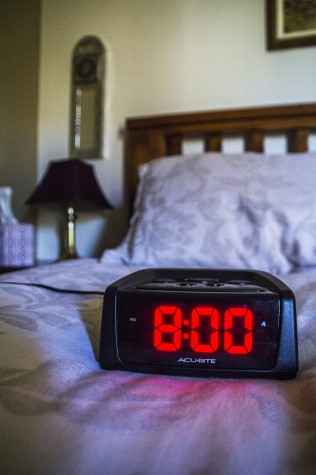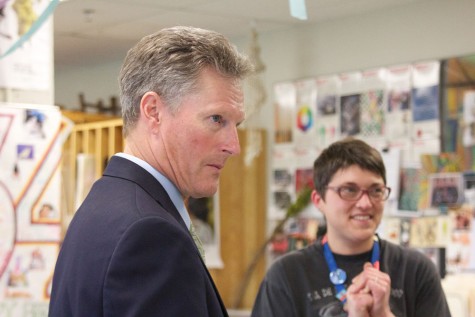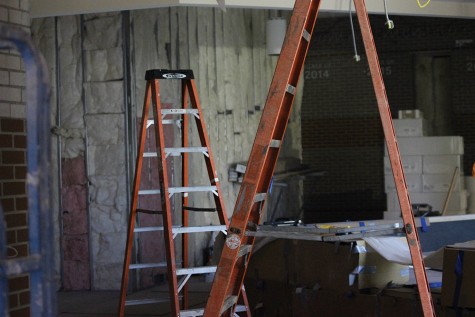Later School Start Times Prove Beneficial
It’s midnight and I’m writing a Common App essay, reading Hamlet, taking AP Government notes and studying for an AP Statistics test while brewing another cup of coffee.
Because school starts at 8:05 a.m. and outside obligations take up the rest of my time, sleep is not a priority in my routine; on a good night I get around six hours. I’m usually hopped up on coffee or another heavily caffeinated drink for a boost of artificial energy to get me through my 18 hour day.
My schedule is not unlike those of my peers. Some students juggle twice my load and start class at 7 a.m or earlier. Most Americans teenagers sleep 6-7 hours, but teenagers need around 8-9 hours of sleep. Because of this, school should start at 9 a.m. and release at a later time.
Two out of three teens are sleep deprived. A 2014 National Sleep Foundation study found that less than 20 percent of teenagers recorded getting more than eight hours of sleep a night. The study cited higher academic rigor and increased technology use as partial causes.
In August, the Fellow of American Academy of Pediatrics released a policy statement addressing the concerns of sleep deprivation in teens and the benefits of a later school start for students.
“Sleep is not optional; it’s a health imperative, like eating, breathing and physical activity,” said pediatrician Judith A. Owens, MD, lead author of “School Start Time for Adolescents” in a New York Times interview.
Later school start can strengthen mental and physical ability. This year, the University of Minnesota released a study that found later school times for high school students reduced tardiness, helped prevent teen car crashes and improved grades.
“When the students were more alert, they were able to get their work done faster and thus get to bed earlier,” Owens said. “It takes a sleepy student five hours to do three hours of homework.”
As a pediatric sleep specialist at Children’s National Health System, Owens asserted in “School Start Time for Adolescents” that sleep-deprived teens were more susceptible to high blood pressure, heart disease, type two diabetes, obesity, suicide, risk-taking behavior and depression.
Most teenagers live heavily scheduled lives filled with extracurriculars, volunteer work, jobs, sports, school and college preparation. Today’s youth have little time to be teenagers.
Just changing the school schedule by an hour would have major improvements on students’ physical, mental and emotional state.
I would like to start my school day energized from a good night’s sleep—not two cups of black coffee.










